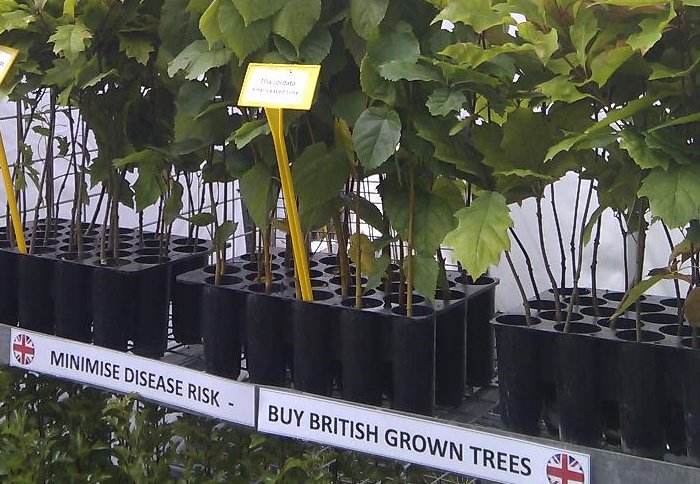New research projects announced to help save UK forests, woods and trees

A major interdisciplinary project to investigate public understanding of tree health risks is among a list of new awards announced by BBSRC today.
The investigation into how the public perceives and understands growing threats to tree health from invasive pests and pathogens such as ash dieback builds on previous research into tree health and plant biosecurity conducted at Imperial by Dr Clive Potter, an environmental social scientist based in the college’s Centre for Environmental Policy.
The project, involving collaboration with other colleagues in CEP and with forest scientists at Forest Research and a social psychologist at the University of Bath, will use a range of social science methods to compare public reaction and involvement with three recent tree disease outbreaks in the UK (ash dieback, ramorum blight and the oak processionary moth). The study will explore how individuals encounter tree pests and diseases in different contexts and assess the role of science communication and media coverage in raising awareness. The project will examine how concern has developed over time and identify the different 'hazard sequences' that may have influenced perceptions and understandings of risk in these cases. The research will contribute to the policy evidence base by defining the nature of public concern about this important issue, drawing lessons for future risk communication and engagement.
.. a key moment in efforts to safeguard tree health in the UK and internationally
– Dr Clive Potter
Commenting on the new award, Dr Potter said: “The dramatic public and media response to ash dieback raises important questions about why the public reacted as it did to the event. What was driving their concern and how can we harness this in future to get the public more involved with tree health issues generally? This timely research will provide key insights into public motivation at a key moment in efforts to safeguard tree health in the UK and internationally”
Dr Potter’s project will be one of seven new awards to receive a share of a £7M investment into tree health research aimed at addressing threats to UK forests, woods and trees. The multi-disciplinary Tree Health and Plant Biosecurity Initiative (THAPBI), funded under the auspices of the Living With Environmental Change Partnership with support from the Biotechnology and Biological Sciences Research Council, Department for Environment, Food and Rural Affairs, Economic and Social Research Council, Forestry Commission, Natural Environment Research Council and the Scottish Government, will generate knowledge to tackle pests and diseases and to support the future health of the UK's woodlands, commercial forests and urban trees. The societal benefits of the UK’s trees are estimated at around £1.8 billion per year.
In the last few years, several new pests and diseases have emerged as significant risks to tree health and plant biosecurity. Changes in trade in plants and plant products may also contribute to the risk of new pests and diseases entering the UK. Climate change may also be increasing the risk of these pests and diseases spreading.
Speaking at the launch of the initiative at the Royal Botantic Gardens, Kew on Monday, Environment Minister Lord de Mauley said:
..it’s not just the environment that suffers, but the economy too
– Lord de Mauley
Environment Minister
“Safeguarding the future of our trees and plants is enormously important — on more than one occasion we have seen the dreadful trail of destruction such diseases can leave behind. And it’s not just the environment that suffers, but the economy too. It is vital we invest in research like this to better protect our precious woodland from the future threat of pest and disease.”
The new research will help to counter these threats by informing and evaluating potential control, mitigation or adaptation strategies. The projects will also generate natural and social scientific knowledge to improve understanding of the environmental, economic and social impacts of changes in tree health.The projects focus on: new approaches for the early detection of problems; understanding public concerns; increasing resilience against tree disease outbreaks; finding genetic clues to better tree health; biological control of insect pests; and understanding ash dieback.
The research will address knowledge gaps identified by Defra’s Tree Health and Plant Biosecurity Expert Task Force and the objectives of the joint Defra/Forestry Commission ‘Tree Health and Plant Biosecurity Action Plan’. The projects will also ensure that the UK has increased research capacity in these areas.
Article supporters
Article text (excluding photos or graphics) © Imperial College London.
Photos and graphics subject to third party copyright used with permission or © Imperial College London.
Reporter
Clive Potter
Centre for Environmental Policy
Lucy Stagg
Faculty of Natural Sciences